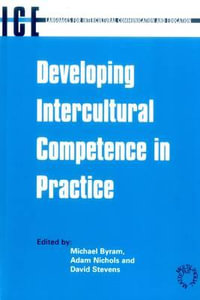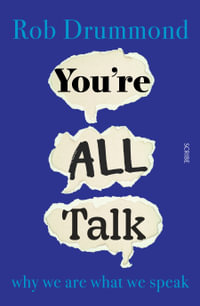Understanding and addressing linguistic disadvantage must be a central facet of the social justice agenda of our time. This book explores the ways in which linguistic diversity mediates social justice in liberal democracies undergoing rapid change due to high levels of migration and economic globalization. Focusing on the linguistic dimensions of economic inequality, cultural domination and imparity of political participation, Linguistic Diversity and Social Justice employs a case-study approach to real-world instances of linguistic injustice. Linguistic diversity is a universal characteristic of human language but linguistic diversity is rarely neutral; rather it is accompanied by linguistic stratification and linguistic subordination. Domains critical to social justice include employment, education, and community participation. The book offers a detailed examination of the connection between linguistic diversity and inequality in these specific contexts within nation states
that are organized as liberal democracies. Inequalities exist not only between individuals and groups within a state but also between states. Therefore, the book also explores the role of linguistic diversity in global injustice with a particular focus on the spread of English as a global language. While much of the analysis in this book focuses on language as a means of exclusion, discrimination and disadvantage, the concluding chapter asks what the content of linguistic justice might be.
Industry Reviews
"This excellent book provides much-needed reading for those interested in linguistic injustice, but also for anyone involved in the business, study or teaching of language." -- Ruanni Tupas, National Institute of Education, Singapore, Journal of Multilingual and Multicultural Development.
"Ingrid Piller presents a powerful case for how language is variously overlooked or misunderstood as a factor that entrenches disadvantage and inequality in a globalized society. She argues that discrimination based on language persists, often justified by appeal to the false premise that individuals exercise complete control over their own linguistic repertoires, and reinforced by tacit assumptions embedded in our cultural practices."--New Books
Network
"This is a serious book on a serious subject. In a globalized world whose rhetoric celebrates linguistic diversity, Ingrid Piller shows that the reality is one of systemic inequality and disadvantage-and makes a strong argument that linguistic questions should figure prominently on the social justice agenda in the twenty-first century." --Deborah Cameron, Professor of Language and Communication, University of Oxford
"A vivid, powerful, and sober analysis of how language serves to entrench injustice and create indefensible discrimination. Piller's wide-ranging book should inspire and shock both the general reader and the research world." --Robert Phillipson, Professor Emeritus, Copenhagen Business School (Denmark), and author of books on language policy, linguistic imperialism, and language rights
"Highly recommended."--Choice
"Ingrid Piller presents a powerful case for how language is variously overlooked or misunderstood as a factor that entrenches disadvantage and inequality in a globalized society. She argues that discrimination based on language persists, often justified by appeal to the false premise that individuals exercise complete control over their own linguistic repertoires, and reinforced by tacit assumptions embedded in our cultural practices."--New Books Network
"[T]his text is an excellent introduction to how language is connected to local and global power structures."--Linguist List
"Linguistic Diversity and Social Justice: An Introduction to Applied Sociolinguistic meets the author's goal of linking linguistic discrimination with other forms of injustice and discrimination. Throughout the book, the author includes illuminating examples and anecdotes of each concept under discussion... The examples in each chapter are enlightening, surprising, and heart-breaking. The reader does not need to be a sociolinguist in order to
understand the premise of this book; the book cites very few sociolinguistic studies, in fact...Nevertheless, for readers with no background in (socio)linguistics, this text is an excellent introduction to how language
is connected to local and global power structures."--Linguist List
"The book offers a thorough and powerful analysis of how language-related issues stand in relation to injustice and discrimination. Today's globalized world might celebrate linguistic diversity rhetorically, but the author shows that reality is quite different - one of systemic inequality and disadvantage ... Piller has the experience and expertise to write a volume such as this one, and she has done an amazing and thorough job. The book constitutes an
important contribution to language related issues and social justice correlation in today's globalized world."-- International Journal of Bilingual Education and Bilingualism
"Piller's introduction to applied sociolinguistics is an outstanding addition to the growing body of work on language and people on the move." --Language in Society
"[T]he book is a fascinating exploration of the (often hidden) ways in which language makes individuals vulnerable to exploitation, discrimination, and other forms of harm. As such, it will
appeal to readers from a variety of academic disciplines, including sociolinguistics, sociology, law, and political theory. However, it is also written in such a way that it will appeal to the general reader, and I truly hope that it is widely read and considered. It is an important and timely contribution to the scholarly and public debate about linguistic diversity, with real potential to change the terms of that debate and to move it forward in productive ways." --International Journal
of Constitutional Law
"[T]he book is very well written and well structured; it is written in a rather lay language, a fact that makes it accessible to a wide audience of both academics and non-academics. Its readability is also enhanced by the fact that all notes are presented in the form of endnotes divided by chapter, which are found at the end of the book. In this way, the reading and understanding of the content of each chapter is smooth and uninterrupted ... [T]his book is
essential reading not only to socioculturally minded linguists but also to policy makers, legal advisers and professionals who are interested in sharpening their intercultural skills." --Sociolinguistic
Studies
























